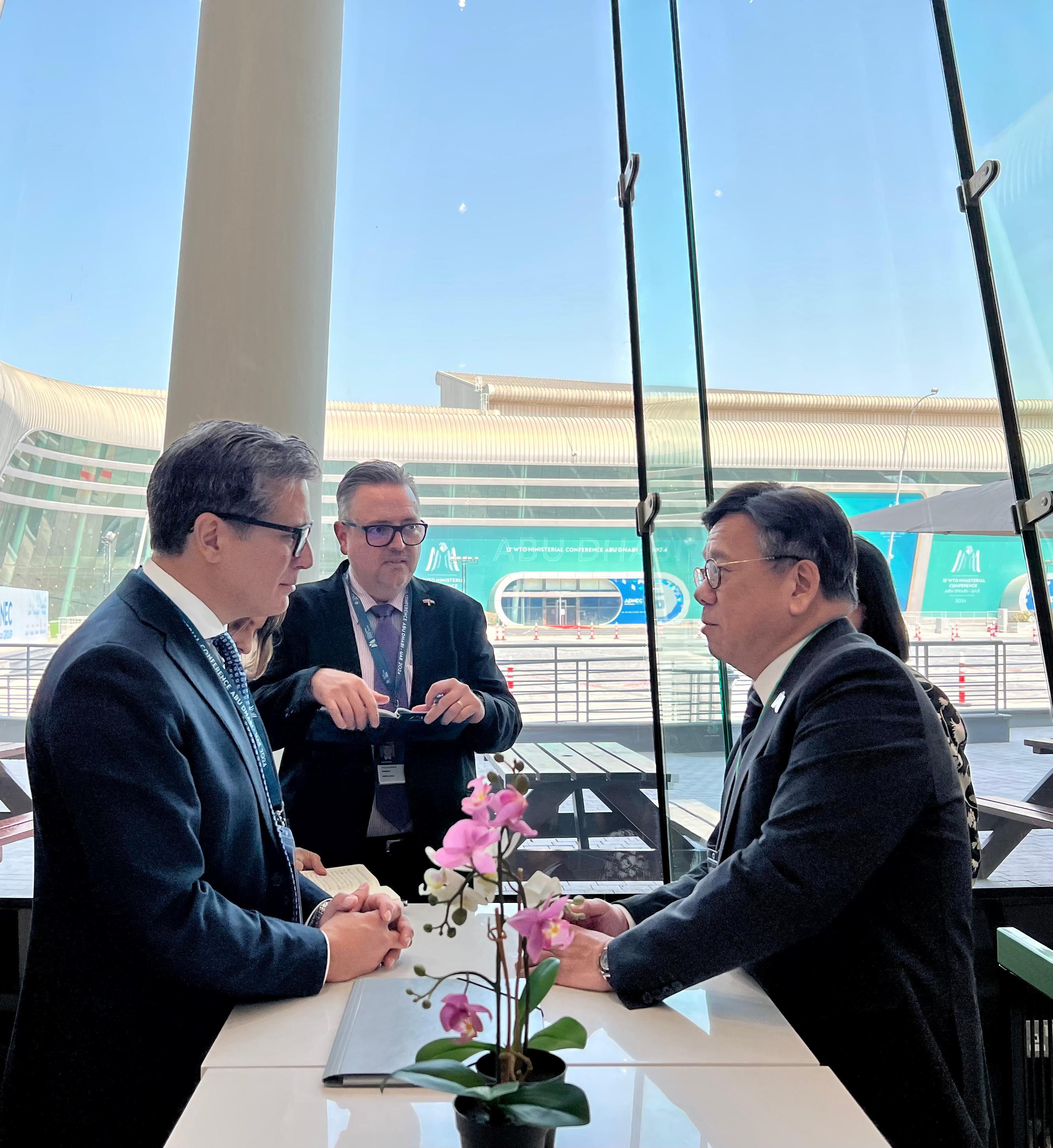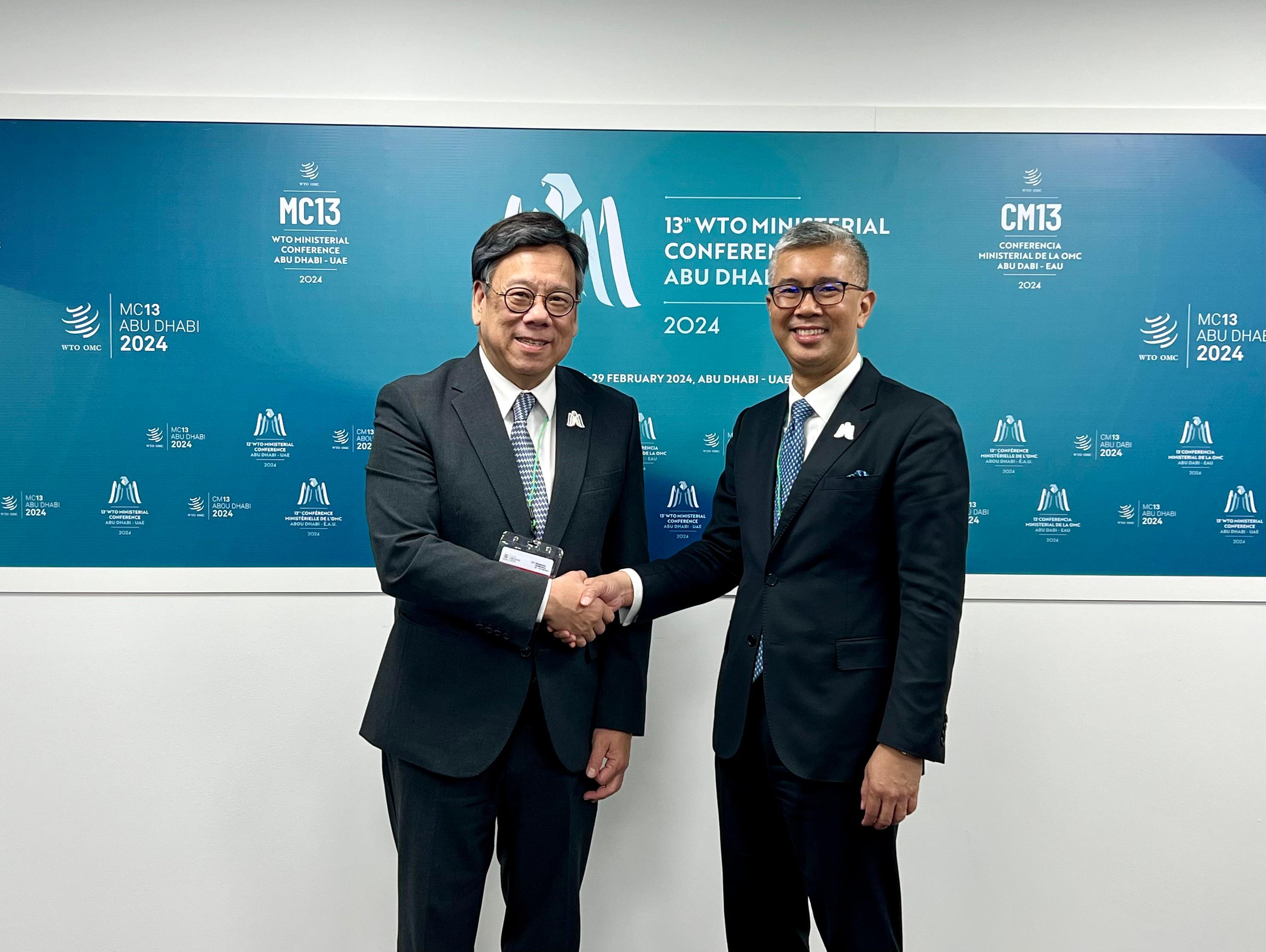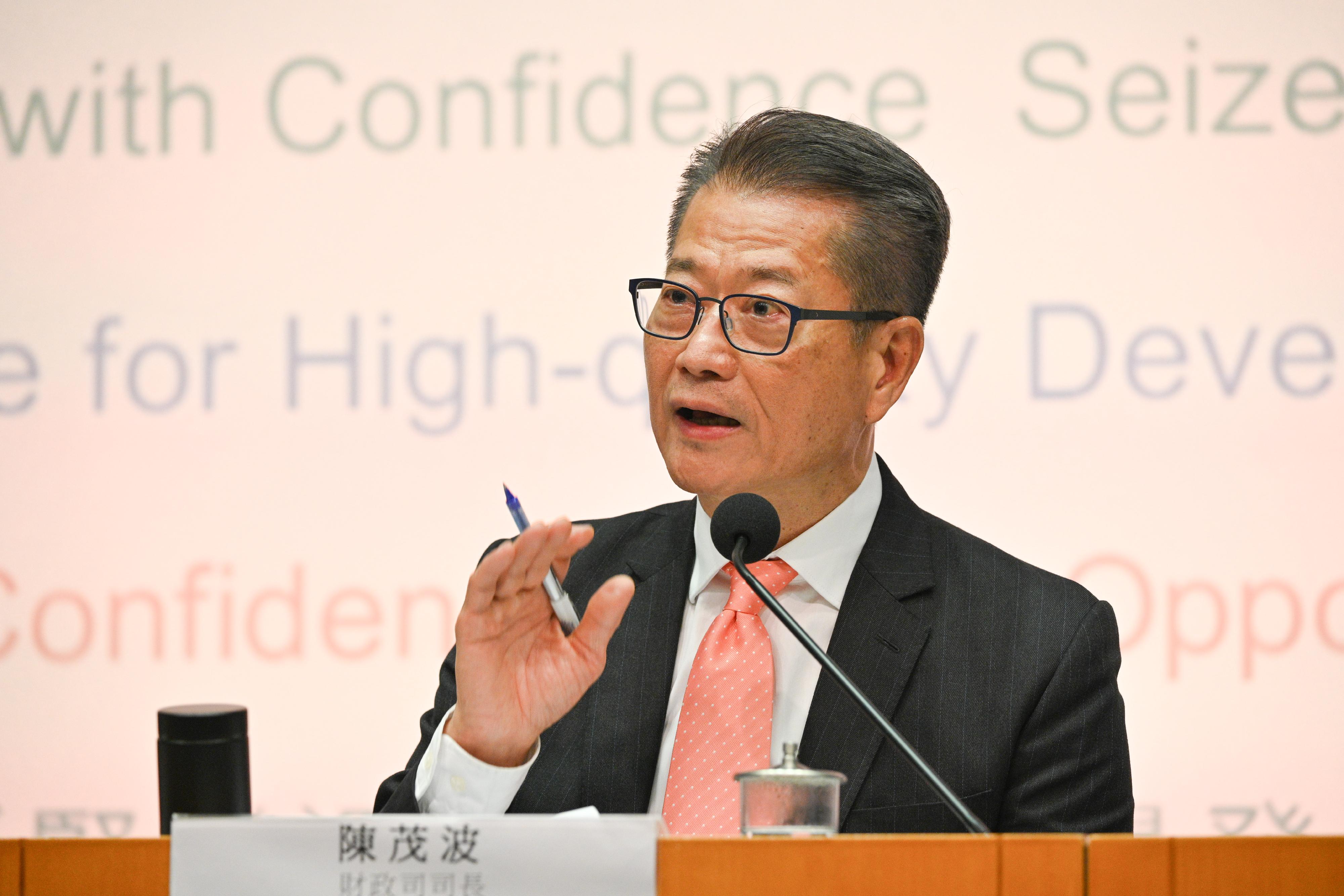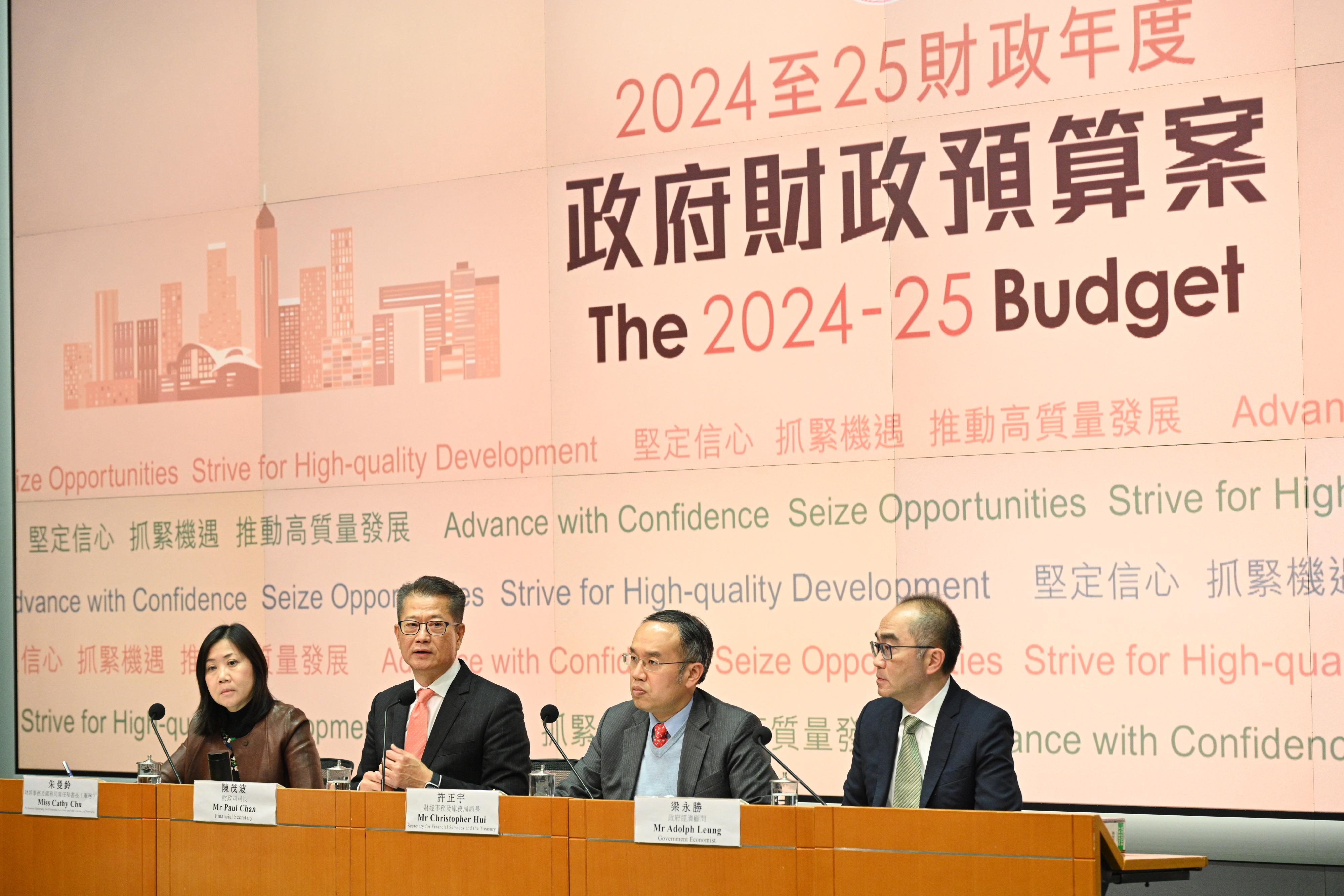Following is the transcript of remarks by the Financial Secretary, Mr Paul Chan; the Secretary for Financial Services and the Treasury, Mr Christopher Hui; the Permanent Secretary for Financial Services and the Treasury (Treasury), Miss Cathy Chu; and the Government Economist, Mr Adolph Leung, at the Budget press conference at Central Government Offices, Tamar, today (February 28):
Reporter: Good afternoon. Firstly, Mr Chan, you've made a big move by scrapping all of the property curbs measures. What is the Government's rationale or beliefs behind it? Have you evaluated how it would affect the market and also how this could help revive the economy? Secondly, how would you also respond to comments that a change in salary taxes targeting the super-rich, and that the general public is only getting a small amount of sweeteners in this Budget? Are you worried that this Budget could not please everyone on all sides? And lastly, with regard to the Government's plan to boost the tourism industry, how effective do you think that these measures will actually be and how do you reconcile the apparent contradiction between boosting tourism but at the same time, also reviving the hotel tax as you mentioned earlier in the Budget?
Financial Secretary: Thank you. We removed all the property-related demand-side management measures, because we do not think they are necessary anymore. The market conditions have been very different now compared to 2010, and thereafter, when these measures were introduced at different times. Taking into consideration the current market situation, the future supply, the economic situation, we think now it is the appropriate moment to remove all these measures, and let the market adjust itself. The immediate assessment is that with the removal of these measures, the volume would likely go up. But at the end of the day, I think whether to buy a residential property is a very personal decision, and it will depend on a number of factors specific to individual buyers, including their own needs, their employment situation, their expectation of the economy, their assessment of the future property market, etc. On salaries tax, we will increase slightly the tax on high-income individuals, i.e. those having an assessable income in excess of $5 million, and the additional rate is just 1 per cent, from 15 per cent to 16 per cent. So the impact on our competitiveness is minimal. We believe, and in fact we have done some research, that even with this increase, our salaries tax regime remains very competitive compared to other jurisdictions. So in order to get additional income by reference to the ability to pay, we think this is the right move.
On the so-called “sweeteners”, or relief measures to the general public, I hope people would understand we have really tried our very best. We have had budget deficit for a few years. This year, it will be deficit again. So there is certain limitation as to the room within which we can hand out those sweeteners. But we are also aware of the situation of individual citizen in the community. Although the economy is recovering and registering positive growth, the growth is not even. Some people have higher income growth and some do not. Under such circumstances, we think it is appropriate for us to provide some relief measures and support, but we have to scale them back a little bit. That's the consideration.
And finally, for the tourism industry, you know, in the Budget, and in fact in the past few months, we have been planning for and organising a number of mega events. And in the Budget, we have allocated over $1 billion for the tourism industry to make available more products, stage more activities, in order to attract more high-quality tourists to come to Hong Kong, and spend more time in the city. So this is what we have been doing. For hotel accommodation tax which we took away a number of years ago, when we look around major cities in the region and internationally, I would say most of them have hotel accommodation tax in one way or another, either as hotel accommodation tax, GST (goods and services tax) or VAT (value-added tax); we are the only exception. So we propose imposing a small amount of tax, which is 3 per cent. It will constitute less than 1 per cent of average spending by overnight visitors, and is affordable. But it will give the Government over $1 billion in income. I think this is the right move and we will give the sector about 10 months’ time to work things out.
Reporter: Some English questions. About the scrapping of all the property cooling measures, what if the market remains lukewarm after the scrapping? What could the Government further do? And the second question, because the Government will extend the tax concessions for electric vehicles, but the amount will be cut by 40 per cent. Will this in turn have a negative effect in encouraging people to go for electric cars? Thank you.
Financial Secretary: On the removal of the demand-side measures for the property market, we believe this is reverting back to the situation when the market was normal. How the market will react, of course, remains to be seen, but I think from the Government's standpoint, it is important for us to grab the right opportunity to remove the frictions in the market. That is the thinking.
On electric vehicles, although the amount of relief has been reduced by 40 per cent, we have to look at this in a broader context, that is, the supply of electric private vehicles has become much wider than before, in terms of price range and choices. We believe this is the right move and would provide sufficient incentives for people who are considering to buy cars to choose electric vehicles.
Reporter: Hong Kong is keen to attract high net-worth individuals. Did you anticipate that the higher salaries tax would impact the talent drive? And will the impending Article 23 affect Hong Kong's appeal as a financial hub, given the exodus of expats in the last few years? And following for Mr Chan, you mentioned the Kau Yi Chau reclamation is unlikely to start in the late of 2025. So will it kick start in 2026, and would it be commenced within the current administration’s term time? Thank you.
Financial Secretary: Thank you. For high net-worth individuals, they are highly mobile. And they will realise that even with this slight increase in our standard salaries tax rate, I think we are still the most competitive international city in terms of salaries tax. And when you compare our tax rate to that in other jurisdictions, hand on my heart, I firmly believe we are still the most competitive.
For Kau Yi Chau Artificial Island, this project will be taken forward. At the moment, we are conducting different feasibility studies and technical studies. Given the time required to do the studies and take stock of their findings in order to roll out mitigating measures, if there are any, we think we could allow ourselves a little more time.
So for the two mega projects, the Northern Metropolis and the Kau Yi Chau Artificial Islands, we think that they do not need to be implemented at the same time. We can have one to follow another. At the moment, the Northern Metropolis mega project is progressing very well. And we are pressing ahead with the feasibility and technical studies relating to the Kai Yi Chau reclamation. With those findings, we will look into different financing options. Then we will be in a better position to roll it out. So we probably would not start reclamation towards the end of 2025. We need to defer it a little bit, but we are determined to do it.
For Article 23, I missed that question, sorry.
Reporter: How would it affect Hong Kong's appeal as a financial hub, given that, the exodus of expats in the last few years?
Financial Secretary: On Article 23, as far as we know, in all the consultation sessions conducted with different sectors, there is consensus in supporting Article 23 legislation. People don't want to see the social unrest that occurred in 2019 to happen again. And stability and security are the premise upon which the economy can really grow. Thank you.
(Please also refer to the Chinese portion of the transcript.)





